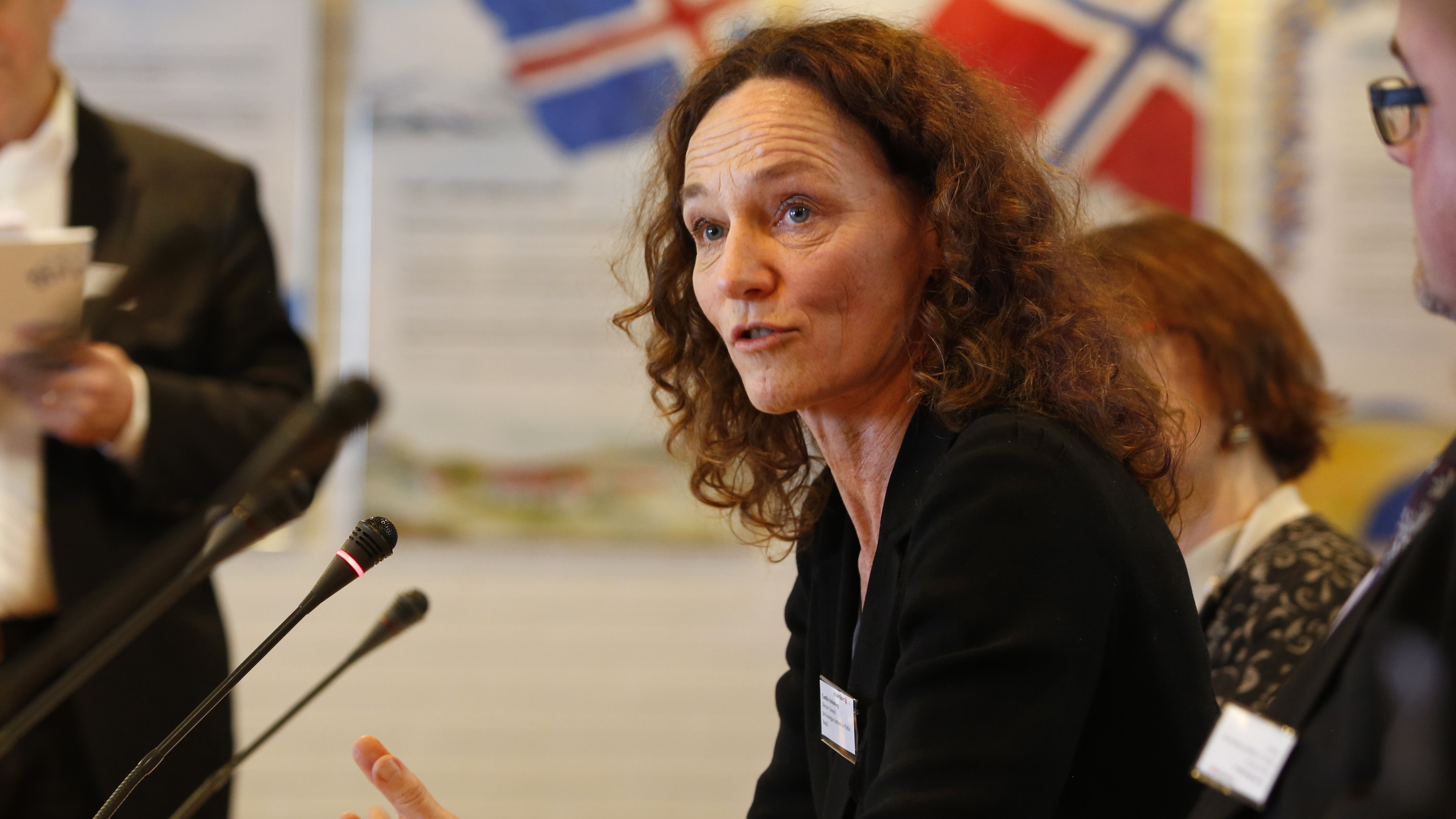Norway health chief claims coronavirus could have been controlled without lockdown
Top official urges government to avoid heavy-handed measures if second wave of Covid-19 hits

A free daily email with the biggest news stories of the day – and the best features from TheWeek.com
You are now subscribed
Your newsletter sign-up was successful
One of Norway’s most senior public health officials has claimed the Nordic country could have controlled the coronavirus outbreak without a lockdown.
Camille Stoltenberg, head of the Norwegian Institute of Public Health (NIPH), says that analysis suggests less restrictive measures would have been sufficient - and has urged the authorities to avoid taking such a heavy-handed approach in the event of a second wave of infections.
In an interview with state broadcaster NRK, Stoltenberg said that Norway “could possibly have achieved the same effects and avoided some of the unfortunate impacts” by not pursuing a full lockdown.
The Week
Escape your echo chamber. Get the facts behind the news, plus analysis from multiple perspectives.

Sign up for The Week's Free Newsletters
From our morning news briefing to a weekly Good News Newsletter, get the best of The Week delivered directly to your inbox.
From our morning news briefing to a weekly Good News Newsletter, get the best of The Week delivered directly to your inbox.
Instead, the reproductive number, or R value, of the virus could have been kept low by “keeping open, but with infection control measures”, she argued.
Latest figures show that as of Thursday morning, Norway had recorded 8,401 cases and just 235 deaths in a population of 5.4 million people.
But according to The Local, the NIPH published a report at the start of May stating that the country’s outbreak was already slowing when the nationwide lockdown was announced.
“It looks as if the effective reproduction rate had already dropped to around 1.1 when the most comprehensive measures were implemented on 12 March, and that there would not be much to push it down below 1... We have seen in retrospect that the infection was on its way down,” the report says.
A free daily email with the biggest news stories of the day – and the best features from TheWeek.com
Reflecting on the decision to shut Norway’s schools, which began reopening last month, Stoltenberg has concluded that “the scientific backing was not good enough”.
The Spectator’s Fraser Nelson notes that Norway’s statistics agency was “the first in the world to calculate the permanent damage inflicted by school closures”.
“Every week of classroom education denied to students, it found, stymies life chances and permanently lowers earnings potential,” Nelson writes.
Stoltenberg told NRK that if her country is hit by a second wave of the virus, “what is needed is a commitment from the entire population to follow the infection prevention advice”.
In neighbouring Sweden, where no lockdown measures were implemented, the death toll was last week briefly the world’s highest per capita. However, the country’s state epidemiologist, Anders Tegnell, said that it is misleading to focus on the death toll over a single week.
-
 Ex-South Korean leader gets life sentence for insurrection
Ex-South Korean leader gets life sentence for insurrectionSpeed Read South Korean President Yoon Suk Yeol was sentenced to life in prison over his declaration of martial law in 2024
-
 At least 8 dead in California’s deadliest avalanche
At least 8 dead in California’s deadliest avalancheSpeed Read The avalanche near Lake Tahoe was the deadliest in modern California history and the worst in the US since 1981
-
 Political cartoons for February 19
Political cartoons for February 19Cartoons Thursday’s political cartoons include a suspicious package, a piece of the cake, and more
-
 Epstein files topple law CEO, roil UK government
Epstein files topple law CEO, roil UK governmentSpeed Read Peter Mandelson, Britain’s former ambassador to the US, is caught up in the scandal
-
 Iran and US prepare to meet after skirmishes
Iran and US prepare to meet after skirmishesSpeed Read The incident comes amid heightened tensions in the Middle East
-
 Israel retrieves final hostage’s body from Gaza
Israel retrieves final hostage’s body from GazaSpeed Read The 24-year-old police officer was killed during the initial Hamas attack
-
 China’s Xi targets top general in growing purge
China’s Xi targets top general in growing purgeSpeed Read Zhang Youxia is being investigated over ‘grave violations’ of the law
-
 Panama and Canada are negotiating over a crucial copper mine
Panama and Canada are negotiating over a crucial copper mineIn the Spotlight Panama is set to make a final decision on the mine this summer
-
 Why Greenland’s natural resources are nearly impossible to mine
Why Greenland’s natural resources are nearly impossible to mineThe Explainer The country’s natural landscape makes the task extremely difficult
-
 Iran cuts internet as protests escalate
Iran cuts internet as protests escalateSpeed Reada Government buildings across the country have been set on fire
-
 US nabs ‘shadow’ tanker claimed by Russia
US nabs ‘shadow’ tanker claimed by RussiaSpeed Read The ship was one of two vessels seized by the US military